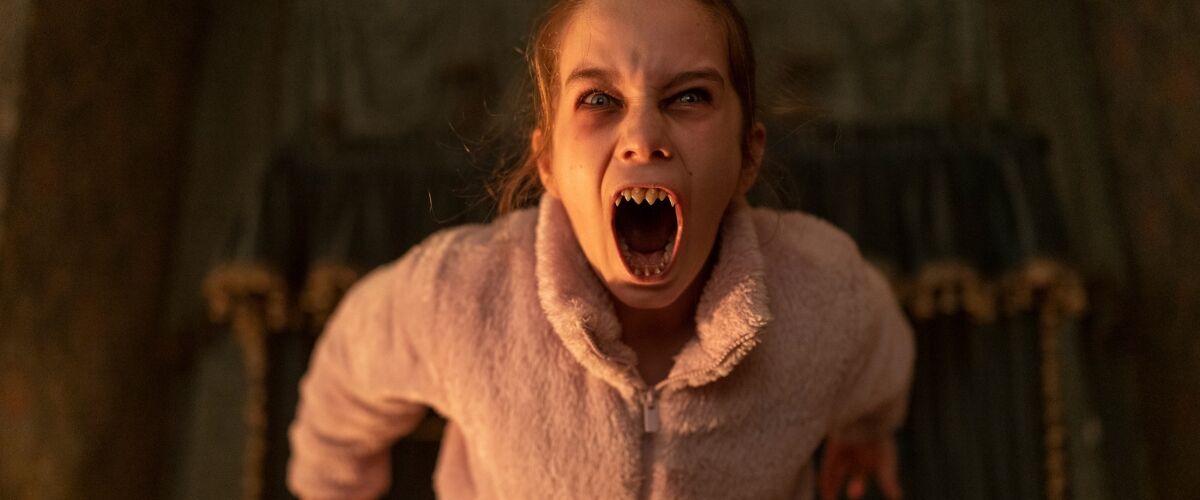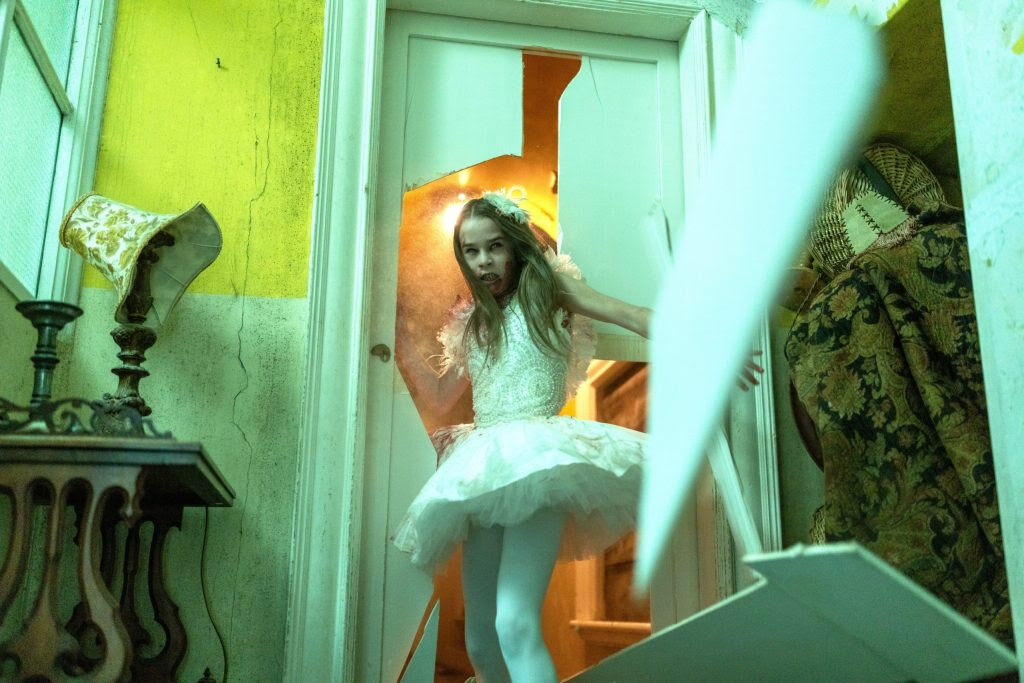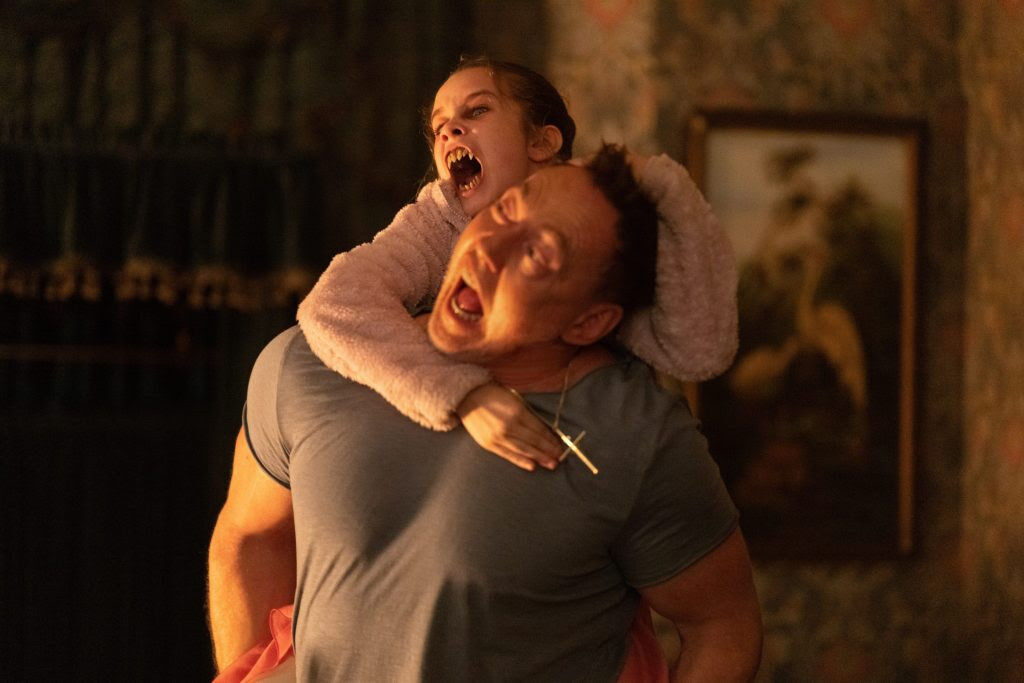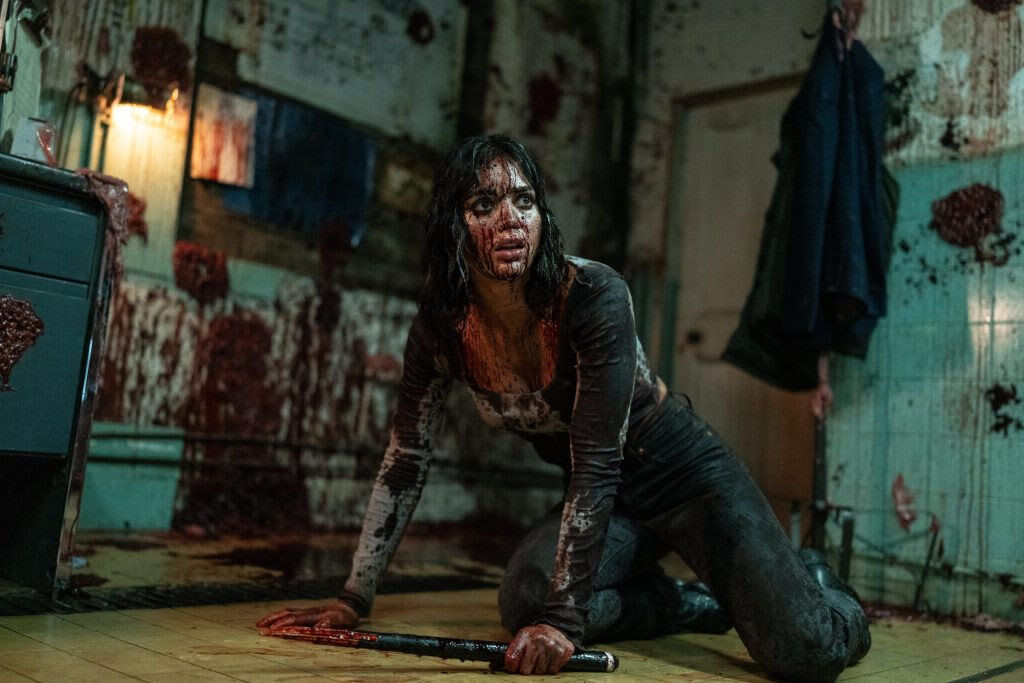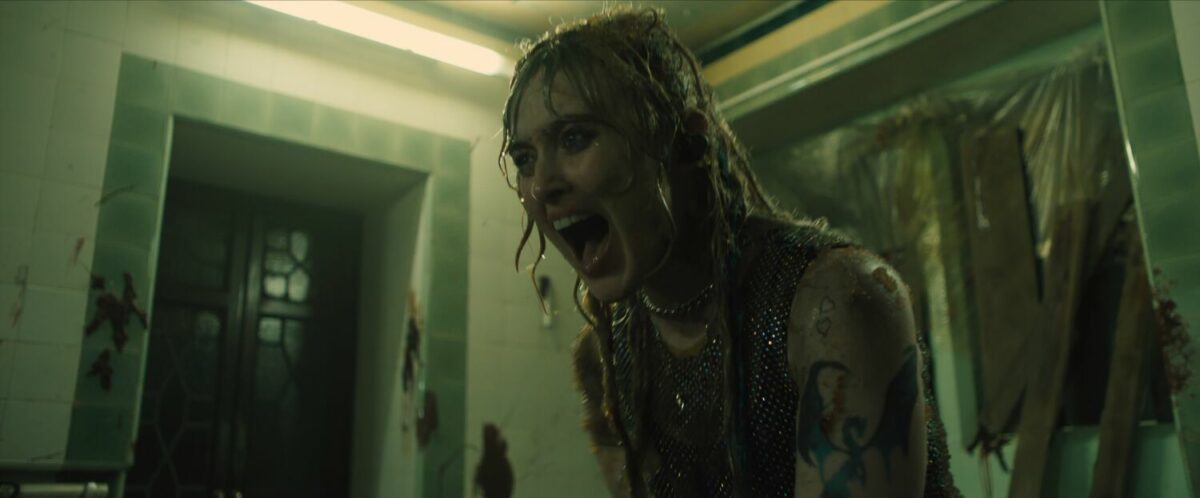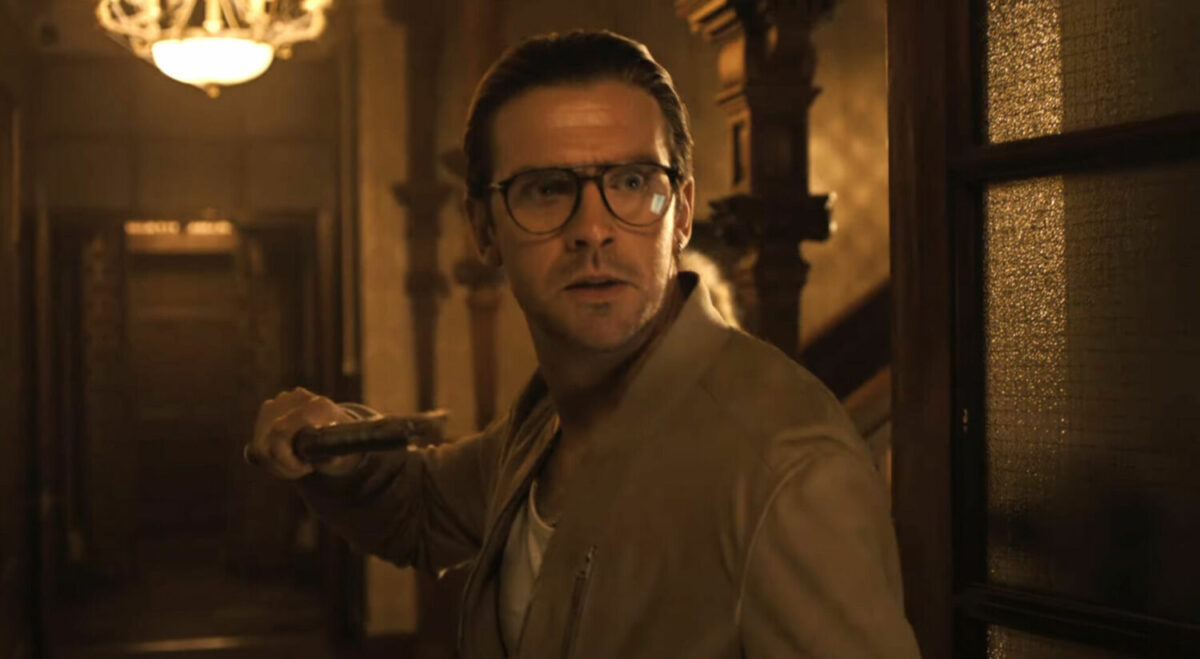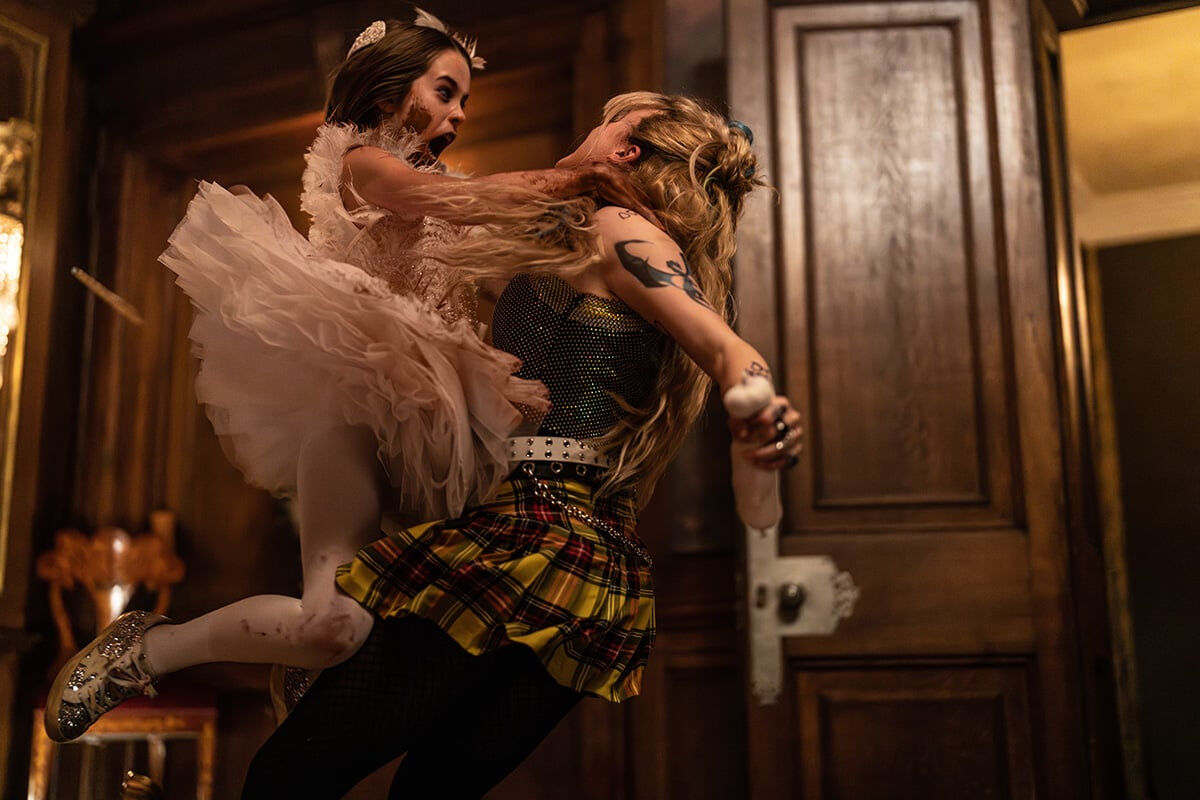Indie horror has a long history of birthing cult classics, yet few have navigated this transition and made a successful leap as the filmmaking collective known as Radio Silence Productions. With a repertoire that includes the gritty anthologies of Southbound (2015) and the unsettling Devil’s Due (2014), the production company has carved a unique niche within the genre.
However, it was their work on Ready or Not (2019) that truly catapulted them into the spotlight, setting the stage for their acclaimed production and direction of Scream V (2022) and Scream VI (2023). This backdrop of success paves the way for their latest venture, Abigail, a reimagining of 1936’s Dracula’s Daughter film that marries the elegance of ballet with the darkness of vampirism, creating a unique medley in horror storytelling.
Directed by duo Matt Bettinelli-Olpin and Tyler Gillett of Scream V and VI fame, this Universal horror tale dares to step into the limelight with an audacious premise that is as beguiling as it is chilling. Anchored by a compelling performance from Matilda the Musical (2022) alumna Alisha Weir in the titular role, the narrative spins around the young Abigail, initially introduced as the daughter of a powerful underworld figure who is kidnapped by a gang of criminals, only for the plot to pirouette into a gory, thrilling chase of survival, à la Usual Suspects with a supernatural, vampiric twist.
Giancarlo Esposito’s Lambert, the motley crew of criminals’ suave yet sinister ringleader, spells out the simple turned ominous task: guard a child who harbours a dark and deadly secret for 24 hours in exchange for a US$50 million dollar reward. A quick glance at the opening credits playing Tchaikovsky’s haunting Swan Lake theme – the same music used in the classic 1931 movie Dracula – might offer a clue as to why this seemingly routine babysitting job is about to become anything but.
As the trailer readily admits, Abigail succinctly encapsulates its high-concept horror premise – a vampire ballerina whose diminutive stature belies her lethal nature. Weir navigates her multifaceted role with a mix of innocence and ferocity, capturing the essence of a predator cloaked in the guise of a child.
Despite Weir’s dedicated performance, the film struggles to offer a coherent stage for her talents, muddling through a narrative that feels as disjointed as it is derivative. It throws a hodgepodge of subgenres at the audience, from slasher flicks to haunted house tales, without fully committing to any, thus resembling a patchwork of horror tropes rather than a masterful mosaic. Its narrative, cluttered with an array of themes, often feels indecisive, leaving its titular character lurking in the shadows of the screen time she deserves.
Joining Weir is an ensemble cast that includes familiar faces such as Melissa Barrera (Scream), Kathryn Newton (Freaky), Kevin Durand (Locke & Key), Dan Stevens (Legion), and the late Angus Cloud (Euphoria), who assemble as a ragtag crew of kidnappers. Among this ensemble, Barrera stands out as Joey, the compassionate caretaker of the titular vampire ballerina. Barrera anchors the film with a performance that strives for emotional resonance amidst the chaos, while navigating a script teeming with exaggerated antics and profanity, all in an effort to add depth to a plot that often circles back on itself and stretches believability thin.
Barrera’s co-stars bring a diverse range of contributions to the table, from the comedic relief provided by Newton, Durand, and Cloud to the menacing intensity of Stevens, who reprises his penchant for playing unhinged roles with a captivating flair. Newton’s portrayal of Sammy and Cloud’s comedic timing shine, yet their talents hint at untapped potential, overshadowed by the film’s broader disjointed narrative.
Abigail’s attempt to blend humour with horror sees characters awkwardly juxtaposed against one another, creating a dynamic that aims for laughs but often lands in the realm of confusion. A scene where the characters are nicknamed after the 1960s Rat Pack attempts to be clever, but instead underlines the film’s struggle to forge genuine connections between them and the audience. This lack of character development is further compounded by the script’s reliance on heavy exposition and clichéd dialogue. Most of the semi-talented ensemble can’t overcome these hurdles, leaving viewers with little reason to invest in their characters’ fates.
Thankfully, the tale quickly transcends the weak preliminary character sketches in the initial act, elevating to a purely survival narrative the moment the titular vampire breaks free from her restraints. The movie truly finds its footing in the climactic third act, where Dan Stevens and Alisha Weir’s performances eclipse the remainder of the cast with campy villainy and a ferocity that breathes life into their roles. Stevens, in particular, revels in the complexity of his character, eschewing the path of the quintessential action hero for a more nuanced portrayal of a man grappling with his own demons.
Directors Bettinelli-Olpin and Gillett shine when indulging in the visceral aspects of horror as their penchant for gore is unabashed, with scenes of vampiric carnage unfolding with a ghoulish delight that’s both grotesque and gleefully over-the-top. The film’s action sequences, relentless from the midway point, showcase a disregard for the physical toll on its characters, lending an almost video game-like resilience to their survival. This commitment to spectacle is evident in the detailed vampire makeup effects and the liberal use of blood splatter, a nod to genre expectations that the film meets with enthusiasm.
There’s an inherent challenge in critiquing Abigail for simply meeting the expectations set forth by its promotional material. This 90-minute journey treads a familiar path within the horror genre, utilising established plot devices and character archetypes that endear as much as they restrict. While Abigail can certainly engage audiences in search of simple, no-frills entertainment, its adherence to formula prevents it from surpassing the boundaries of genre conventions. Despite its competent production values, the film misses an opportunity for innovation, leaving it hovering at the edge of mediocrity.
Reminiscent of Radio Silence’s previous work, Ready or Not, albeit with less fervour, Abigail amalgamates effective components but struggles to fully animate its central figure in a way that resonates. This cinematic endeavour, while not lacking in craftsmanship, tends to meander within the confines of plot predictability.
For fans of budget-conscious B-grade movies seeking an easy watch, Abigail might hit the mark. Yet, for those in pursuit of a narrative with depth and novelty beyond the surface-level horror spectacle, the film might not rise to the occasion. In essence, Abigail presents a paradox of fulfilling expectations while simultaneously falling short of transcending them, leaving viewers with a neatly packaged, albeit unremarkable, cinematic experience.
GEEK REVIEW SCORE
Summary
Despite sinking its teeth into strong performances and a bloody good time in the gore department, Abigail fails to deliver a cohesive narrative or well-developed characters, ultimately offering a predictable and forgettable experience.
Overall
5.6/10-
Story - 5/10
5/10
-
Direction - 6/10
6/10
-
Characterisation - 5/10
5/10
-
Geek Satisfaction - 6.5/10
6.5/10

